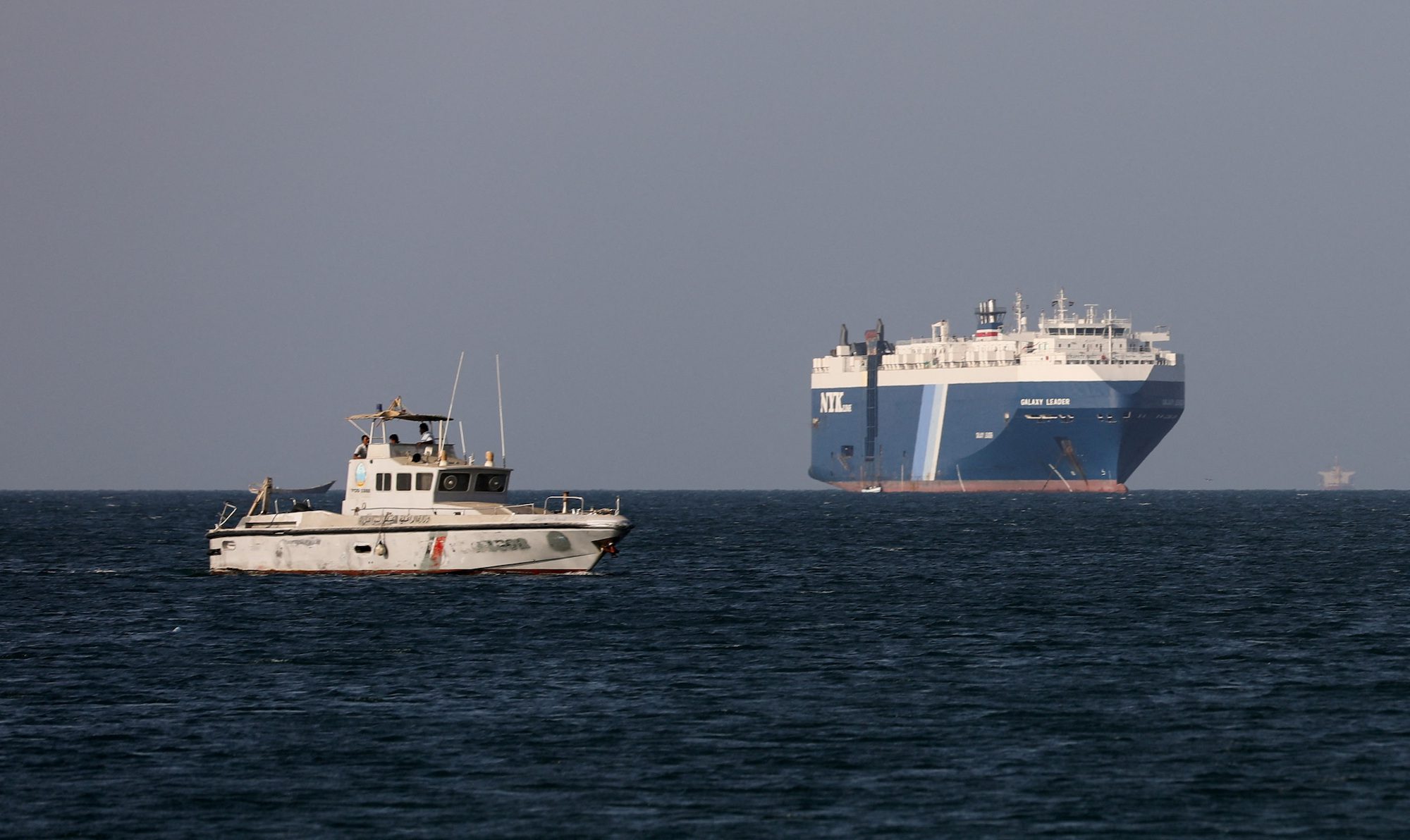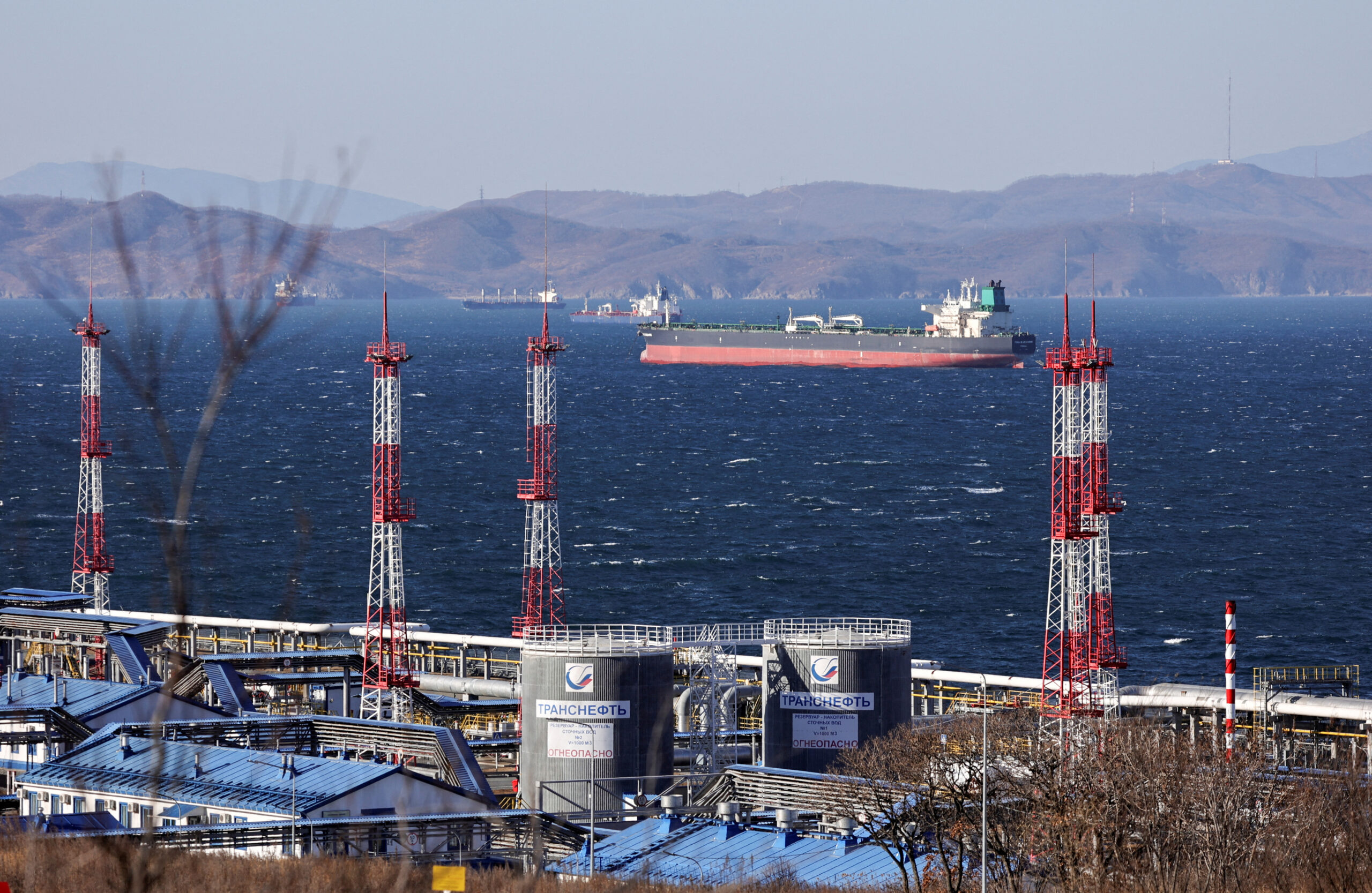By Alex Longley, Áine Quinn and Jack Wittels (Bloomberg) —
The global shipping industry is bracing for the prospect of living without its most important trade route for weeks.
Even as the US works to pull together a task force to stop Houthi militants in Yemen from attacking commercial vessels, shippers are still waiting for details, and worry about implementation. The Houthis are attacking ships to show support for Hamas in its war against Israel, and some in the region worry that too forceful a response will only escalate the violence.
So shippers are sending vessels the long way around Africa, adding $1 million in costs — and seven to 10 days of time — to each voyage. Oil prices are creeping higher.
The attacks have created potentially a worse — and more enduring — shipping emergency than the Suez Canal shutdown in 2021, when a ship stuck for a week snarled global trade for months. As vessels hauling everything from oil to grains to autos are forced to sail around Africa, the extra costs and delays pose risks to the global economy, just as inflation looked set to be cooling.
“It could be anything between, hopefully, days or weeks but of course there are also scenarios to think about when it takes longer,” Rolf Habben Jansen, chief executive of German container carrier Hapag-Lloyd, which has stopped sailing the Red Sea, told Bloomberg TV.
For captains and companies, even the possible fixes pose problems. Naval convoys shepherding ships through the perilous stretch of water could offer some protection, but it’s not straightforward.
“It will slow down the trade because we will have to wait for a convoy to pass through” the region, Euronav NV Chief Executive Officer Alexander Saverys said in an interview with Bloomberg TV. The oil tanker giant has halted all shipments via the Red Sea and won’t go back until such military escorts are in place.
The Pentagon hasn’t yet detailed how the so-called Operation Prosperity Guardian will protect ships. Vincent Clerc, the chief executive of container shipping giant A.P. Moller-Maersk A/S, reckons it will take a few weeks for the task force to become operational.
Loose convoys, or group transits, which follow a certain route have been used in the past when Somali piracy was an issue, according to Jakob Paaske Larsen, head of maritime safety and security at shipping industry group Bimco. It’s also possible to try and secure a broad area and deploy military units according to the situation, he said.
A strict convoy — where military ships escort vessels — is probably less likely as “it’s so resource-intensive,” Larsen said. “I just don’t think that there will be enough warships.”
The US-led coalition that is participating in Operation Prosperity Guardian includes only a handful of European Union countries. Spain has said its involvement is subject to EU and NATO decisions, state news wire EFE reported Tuesday, citing the ministry of defense.
Washington has also asked Australia to join, a request essentially rebuffed by the government in Canberra.
Those details may delay the time it takes for the security situation to be brought under control, said Munro Anderson, head of operations at marine war risk and insurance specialist Vessel Protect.
“Commercial operators are only going to return to the area where they can be assured of the effectiveness of security provisions being implemented,” he said. “With the latest announcement it is hard to see how this is being achieved.”
© 2023 Bloomberg L.P.

 Join The Club
Join The Club











